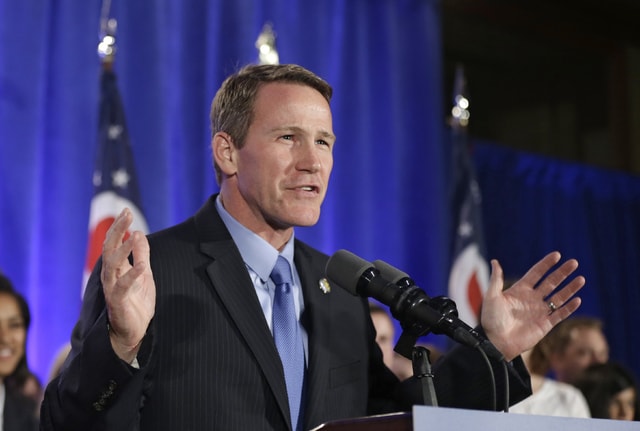
COLUMBUS (AP) — Ohio’s elections chief and advocates for the homeless are making their final arguments in a federal lawsuit that could affect how thousands of ballots are cast and counted in the swing state.
The advocates, along with the Ohio Democratic Party, are suing Republican Secretary of State Jon Husted over changes made in 2014 to requirements for absentee or provisional ballots. The two sides reiterated their arguments and findings in court briefs last week and are expected to submit their final filings with the court on Thursday. The case would then be left to the judge to decide.
A look at what each is saying and some details about the dispute:
THE BALLOT RULES
At issue are the laws and procedures for absentee and provisional ballots. Provisional ballots are those cast when a voter’s identity or registration is in question, among other reasons. The voter’s eligibility is verified later.
Among other changes, the two laws challenged in the suit require voters to provide certain identifying information when submitting their absentee or provisional ballots. Voters must include their name, signature, a valid form of ID, address and birthdate.
THE COMPLAINT
The Democrats and advocates argue the laws create new hurdles for voters, particularly members of minority groups, and amount to modern-day literacy tests.
In their recent brief, they told the court that Ohio has shown “no legitimate, strong or necessary” reason for imposing the changes.
The plaintiffs say the laws, along with Husted’s directives, fail to provide elections boards with uniform standards for deciding whether to reject or count ballots. Instead, they say, that’s left to discretion of the 88 county boards, violating voters’ equal protection rights. They point to instances where invalid ballots were counted and valid ballots were tossed because of technicalities.
The parties also argue that the use and rejection of absentee and provisional balloting has been higher in counties with more minorities, which, they say, suggests that minorities are using absentee and provisional balloting at higher rates and having their ballots rejected at higher rates than whites.
The plaintiffs’ attorneys told the court last week the challenged laws are not just “solutions in search of a problem.”
“They are Defendants’ means of ensuring that the votes actually counted will be whiter and more Republican,” they wrote.
STATE’S CLAIMS
Husted’s attorneys describe the challenged laws as “reasonable, nondiscriminatory rules that made only minor changes to Ohio’s absentee and provisional voting procedures and impose little burden on voters.”
They point to election data showing the statewide acceptance rates for the ballots improving after the laws were put in place in 2014.
“And these laws serve many legitimate interests, including registering unregistered voters, updating voter registration information, and, ultimately, making more votes count,” the state’s attorneys told the court in filings last week. They have said that having the multiple identifiers helps election officials more easily locate voters in databases.
The state’s attorney called the plaintiffs’ comparison of the laws to a literacy test “unfounded.”
“Requiring voters to provide their birthdate and address, even in combination with the remaining fields, bears no resemblance to the ‘discriminatory tests to suppress the registration of minorities’ that the Voting Rights Act aims to combat,” the attorneys wrote in their brief.
The state said the plaintiffs have failed to prove that the challenged laws violate the constitution or any law.
NEXT STEPS
U.S. District Judge Algenon Marbley heard testimony from county elections officials, election experts and others during a bench trial in March. After Thursday’s final filings, he could rule on the case. The plaintiffs want the judge to permanently block the challenged laws from being enforced. Husted’s attorneys say the judge should rule in their favor on all claims.


